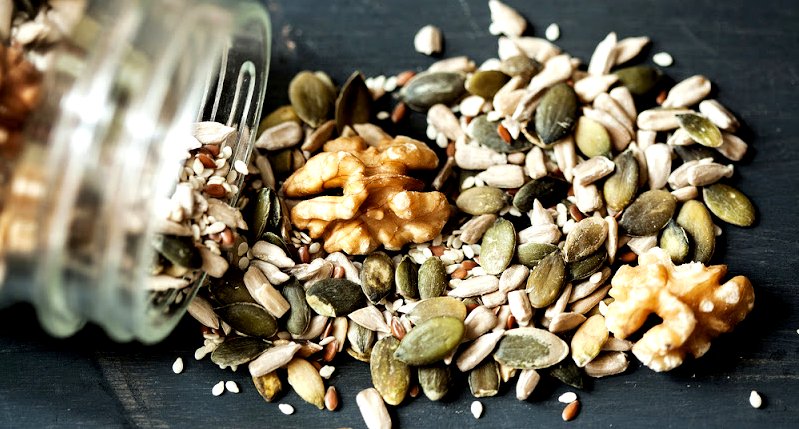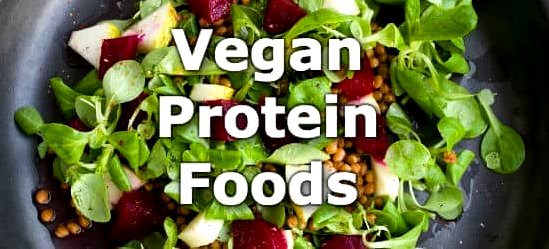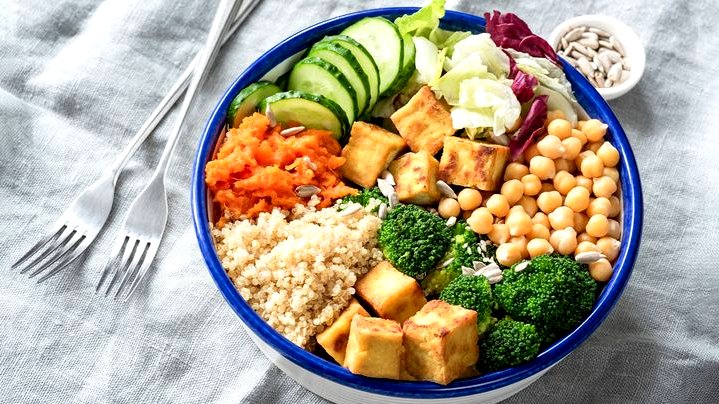As an adherent to a vegan lifestyle, you have likely encountered questions regarding "where do you obtain your protein from?" at more times than can be counted. Vegans often believe they cannot obtain enough protein through plant-based diets; however, this misconception is far from reality! In reality, plant-based foods offer an abundance of sources that provide protein. By eating a balanced and varied diet, chances are good that an adequate amount of protein will be obtained. However, it is essential that individuals understand the amount of protein needed daily in order to sustain optimal health, as well as any vegan sources available to them. This article seeks to unravel this enigma - "How Much Protein Do I Need Daily?" As we dive deeper into protein requirements, complete proteins, and plant-based protein sources, you will gain all the tools to assess and meet your personal protein requirements without resorting to animal products. Are we ready for our deep dive into this complex subject matter?
I. Understanding Your Protein Requirements
Before we delve into vegan protein sources in greater depth, let's first address the complex nature of determining one's personal protein requirements. Contrary to what may have been assumed, daily protein needs do not fall neatly into a one-size-fits-all category but require taking into account body weight, activity level, age, gender and muscle mass - among many other considerations - before becoming an exact science.
As a starting point, healthcare professionals recommend following an RDI or Recommended Daily Intake for Protein which equates to 0.8 grams per kilogram of body weight for adults. Now let's consider that for someone weighing 60 kilograms who desires an adequate intake, that means roughly 48 grams of protein daily would suffice just to reach this RDI figure - although please keep this as just an indicative estimate and not as an absolute answer.
Protein requirements vary based on an individual's lifestyle, fitness routine and health status; thus requiring an individualized and tailored approach that considers various variables. One way to do this is multiplying one's bodyweight in kilograms with an activity factor, typically anywhere between 1.2 for sedentary individuals up to 1.8 for construction workers or elite athletes - but keep in mind this approach may not fit everyone equally! Individual circumstances must always be taken into consideration.
As an example, consider this hypothetical case - if you weigh 68 kilograms and engage in moderate physical activity, approximately 82 grams of protein daily is estimated. Keep in mind that these calculations should only be considered rough estimates, and consultation with health professionals is highly advised before making decisions based solely on them.
As if calculating protein intake wasn't already complex enough, additional intricacies must be considered, including factors that influence our protein needs such as age, gender and muscle mass. Scientific research demonstrates that older adults seeking to maintain muscle mass may require additional protein; pregnant or nursing women require increased amounts due to offspring development needs - leaving us wondering where that leaves the rest of us?
Once we understand protein requirements, it's time to explore vegan-based protein sources that can help us meet and surpass daily protein needs - let's dive in!
II. Understanding Your Protein Requirements
Being vegan doesn't entail being devoid of protein in your diet, contrary to popular belief. There are an abundance of plant-based protein sources that are readily available and studies have demonstrated this fact. A well-planned vegan diet can provide all essential nutrients, including protein. Furthermore, these alternatives boast tremendous nutritional value which makes it hard to overlook them altogether.
Plant-based Protein Sources
Lentils, chickpeas, and black beans are among the best sources of plant-based protein; one cup of cooked lentils alone boasts 18 grams! Tofu is another versatile option and typically provides approximately 8 grams per 3.5-ounce serving.
Tempeh, another fermented soy-based product, should be your go-to plant-based protein source. Easy to digest and packed with 31 grams per cup of cooked tempeh, seitan is another popular meat alternative that's packed with 21 grams per 3-ounce serving - ideal if you want an animal protein fix in one dish!
Nuts and seeds make delicious snacks for those living vegan lifestyles, providing healthy fats and fiber as well as an abundance of protein sources such as almonds, chia seeds, hemp seeds and pumpkin seeds. Even commonly considered grains like quinoa contain 8 grams of protein per cooked cup!
Whole grains like brown rice and oats provide an ample source of protein; one cup of cooked brown rice provides about 5 grams. It's important to remember that plant-based diets may have certain amino acid restrictions; these issues can easily be overcome by eating a variety of protein sources daily - combine grains with legumes for complete proteins!
How to Meet Protein Requirements on a Plant-Based Diet?
"A well-planned vegan diet can provide all essential nutrients, including protein."
It is essential to include protein-rich options in every meal and snack. Combine at least two protein sources at each meal to maximize protein intake and ensure that you get a complete range of amino acids. Use a variety of plant-based protein sources to ensure that your body gets all the necessary nutrients in an adequate amount, and consult a professional dietitian or nutritionist if you're unsure about how to meet your protein requirements.
III. Vegan Sources of Protein
Do you believe you know how to satisfy your daily protein requirements on a vegan diet? Think again; meeting them requires much more than randomly throwing some seeds or tofu on a plate and calling it lunch. In order to meet them successfully, one must understand basic concepts of nutritional biology while strategizing around various protein sources in meals and snacks.
Understanding your daily protein requirements
Understanding your daily protein requirements is of utmost importance, yet understanding their quality can be more perplexing. Not all vegan protein sources contain essential amino acids essential to our bodies while others may require combinations to achieve complete amino acid profiles.
Adding protein-rich foods to your daily routine
How can you add protein-rich foods into your daily routine successfully? Plan ahead! Plan out meals and snacks so that you meet all your daily protein requirements - it doesn't just need to be tofu and legumes either; experiment with new vegan protein sources such as hemp seeds or tempeh for an exciting variety.
Snacking for protein
Now let's focus on snacks! Snacking can be a great way to add additional protein throughout your day - but be careful when selecting vegan snacks containing protein, such as roasted chickpeas or hummus with veggies.
Combining proteins for optimal intake
Combining proteins can boost the quality of your intake. For instance, try mixing beans or lentils into your rice or quinoa dishes for an ideal complete amino acid profile - we're into advanced protein science here!
Tracking protein intake
Stay tuned! There's more! If you are still unsure whether your daily protein requirements are being met, track them with apps available that help in tracking protein. They provide extra help with math calculations should the need arise.
Meal examples
Now let's get to the fun part - meal examples! Be prepared to indulge your senses! Among these delicious offerings is Chia Seed Pudding made with Nutty Almond Milk and garnished with Nuts & Seeds as breakfast; Tofu/Tempeh Stir-fry with vegetables & brown Rice as lunch; Lentil Soup With Quinoa And Side Salad Of Tofu Or Seitan As Dinner And Roasted Chickpeas With Spices as Snack... all simply delectable!
As previously discussed, now you are equipped with the knowledge and strategies to meet your daily protein requirements on a vegan diet. By including various vegan protein sources into meals and snacks, planning ahead, snacking smart, trying out new foods, combining protein sources together and tracking intake; all can contribute to reaching your goals and reaching them on schedule! So go ahead, fuel up your body with all of its needs for protein! Variety truly makes life sweeter!
For more on vegan sources of protein, check out Healthline.IV. Meeting Your Protein Needs on a Plant-Based Diet
Consuming a diet rich in plant-based proteins not only meets your protein requirements but can also reduce the risk of chronic illnesses like cardiovascular disease, type 2 diabetes and some cancers. Plant-based proteins also promote improved digestive health and reduced digestive issues since they're easier to digest compared to animal proteins. Moving towards a vegan diet has many environmental advantages; animal agriculture contributes heavily to deforestation, pollution and carbon emissions. Plant-based proteins also tend to be more cost-effective compared to their animal-sourced counterparts, making a diet of plant-based foods accessible no matter your budget or ethical concerns related to animal welfare. Many vegans choose plant-based proteins due to such concerns.
Integrating Vegan Protein Sources
Integrating vegan protein sources into meals and snacks is both delicious and fulfilling, thanks to an abundance of plant-based protein sources available today. With all this choice at our disposal, meeting our daily protein requirements has never been easier while enjoying other benefits of this diet. Whether you have been living a vegan lifestyle for some time now or are considering transitioning, take pride in your sustainable, ethical, and health diet!
Knowing How Much Protein a Vegan Diet Requires
Knowing how much protein a vegan diet requires is essential, yet only part of the equation. Understanding vegan protein sources, planning meals and snacks accordingly and tracking intake are also equally as crucial components. By doing this, it is easier than ever to meet your daily protein requirements while reaping all of the advantages associated with plant-based proteins. So explore all of the delicious plant-based sources available! From legumes and tofu to nuts and seeds, vegan proteins come in an incredible array of textures and flavors sure to please every palette. As you discover new vegan proteins, not only will you experience new and tasty flavors but you'll also gain satisfaction in contributing positively to both the environment and personal wellbeing.
Summary
Learn more on pubmed.gov about Meeting Your Protein Needs on a Plant-Based Diet.A plant-based protein diet can help reduce the risk of chronic illnesses, promote improved digestive health, and is environmentally sustainable. With an abundance of plant-based protein sources available it is easy to meet daily protein requirements. Integrating vegan protein sources into meals and snacks is both delicious and fulfilling
Conclusion
After exploring vegan protein sources and satisfying your daily protein requirements, our goal is to foster a sense of empowerment in you so you can begin or expand on your plant-centric protein journey.
Vegan lifestyle followers must keep this in mind: you can easily fulfill their daily protein requirements while enjoying delectable and nutrient-rich treats. With access to an abundance of plant-based proteins available and strategies such as planning meals and indulging in snacks, reaching their recommended daily intake (RDI) can become effortless.
Consuming protein is certainly essential, yet only one element of a balanced vegan diet. By including whole foods, fruits and veggies as well as plant-based proteins into your meal plans, you can take pride in its positive influence both on yourself and the planet.
Taken all this into consideration, enjoy the abundance of vegan protein sources available to you while keeping an accurate record of your consumption, exploring new foods and taking full advantage of meal planning for maximum well-being every day. Doing this can help meet daily protein requirements with plant-based eating and promote overall wellbeing every day!




